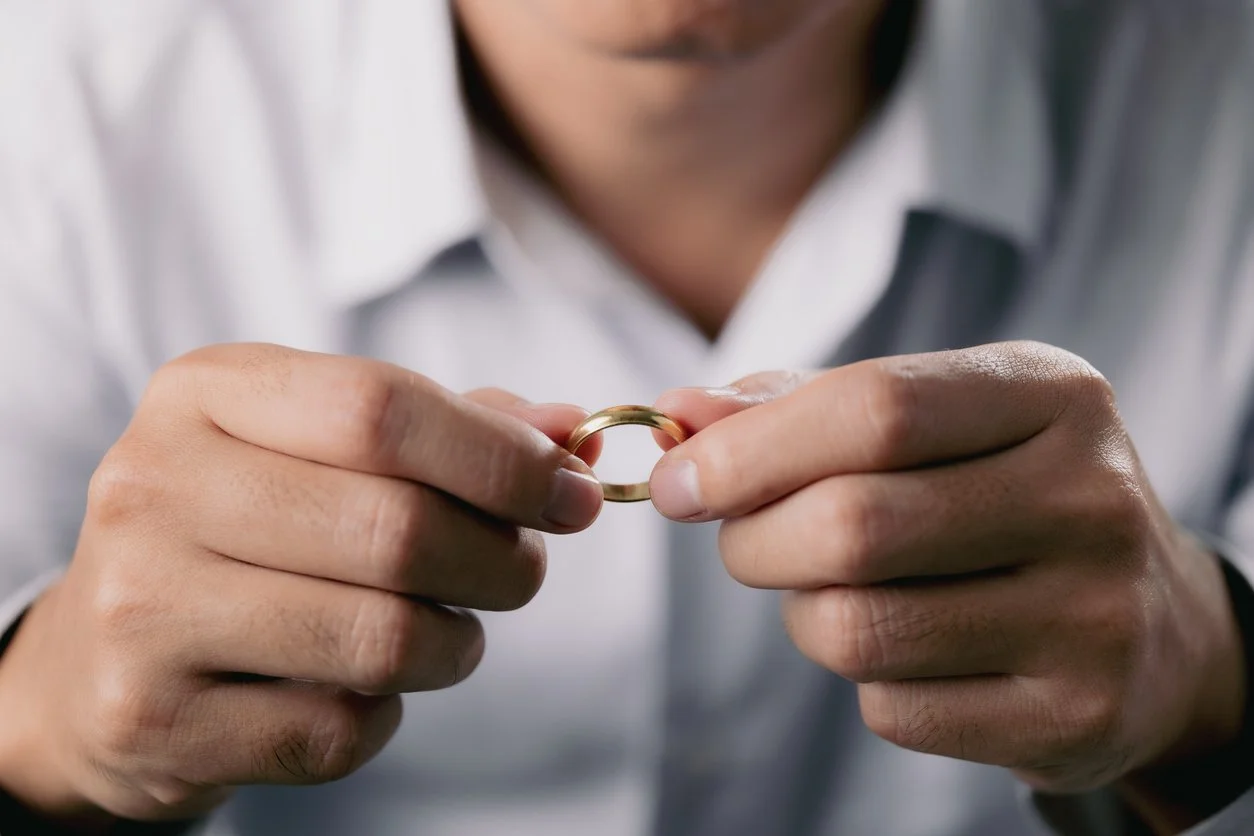How Does PTSD Develop and How Long Does It Last?
PTSD is not an unfamiliar term, but for many, it is often misunderstood. While typically associated with military life and war veterans, it’s also prevalent among the general population.
PTSD can be considered a crossroads between past moments and the present — when your mind cannot distinguish between past trauma and your current reality. Simple stressors can cause flashbacks, panic, and immobility.
Every day, stress will come and go, but PTSD continues to affect life until it is resolved.
Read More
5 Subtle Signs of Attachment Trauma in Adults
Our childhood years shape us in many ways. The bond formed with our parents or caregivers from a young age is one of them. When this bond is ineffectively formed or damaged, it can result in developmental challenges like attachment trauma. It stems from not having basic needs met or being nurtured with care or compassion.
Attachment trauma is different from other types of trauma in that it’s more subtle and develops over time. Here’s a look at five signs of attachment trauma often seen in adults.
Read More
The Playbook of Narcissism: Understanding Gaslighting
Now more than ever, we’re exposed to stories and experiences with narcissism and gaslighting. Social media helps provide a platform for conversations about mental health and relationship struggles. People, in general, are also more inclined to divulge specific details about their personal experiences, whether to cope or to help others learn from their mistakes.
Having conversations about narcissism and gaslighting is a great start, but it’s only beneficial if you have a true understanding of what they are. Let’s explore the topic further.
Read More
Searching for a Career: What If You Don’t Know What You Enjoy Doing?
It’s an age-old question that every child is asked many times during their school year. What do you want to be when you grow up?
When you’re younger, it’s an easy question. Nothing is unimaginable or out of the question. If you want to be a baseball player or ballerina, of course, you can. As you get older, this question becomes a bit more realistic, but many young people have ideas on what they want their careers to be.
What happens when you don’t actually know what you want out of your career? It’s more common than you think. Finding a career path can be a bit challenging. If you’re unsure what you enjoy doing, there are some steps you can take as you search for what comes next.
Read More
6 Ways to Fix Bad Communication in Your Relationship
You and your partner are a team. You’re facing this thing called life together. Unfortunately, poor communication skills can derail even the best of relationships. It can lead to misunderstandings, increased conflict, and larger hurdles than what is necessary.
You may find yourself in a defeated place, but fixing bad communication is absolutely possible. Here are six ways you can start.
Read More
Couples Therapy: Do We Have to Talk About Sex?
Couples come to therapy for a number of different reasons. It could be related to concerns of communication problems, issues surrounding trust, financial matters, or a lurking feeling of disconnect. One thing that isn’t often the main driver for attending couples therapy is sex and intimacy.
Read More
5 Tips to Stop Repeating Relationship Mistakes
If you’ve had a recent breakup or feel like you are in a cycle of failed relationships, the prospect of dating again can be daunting. However, you are not doomed to repeat past relationship mistakes. The key is to be willing to learn from your relationship history and make the necessary adjustments to have healthy relationships in the future. Here are five tips to help get you started.
Read More
6 Ways to Naturally Reduce Anxiety
Anxiety is a common occurrence for many people. It can cause a separation of your mind and body, leading to feelings of internal struggle and chaos.
While there are conventional options for treatment, more and more people are turning to natural alternatives to soothe their nervous systems. Here, we’ll explore six ways to manage your anxiety naturally.
Read More
How Long Does the Gottman Method Take?
The Gottman Method is a trusted approach for couples counseling to help overcome communication habits, conflict resolution, and connectivity struggles. This method was developed by psychologists Dr. John and Dr. Julie Gottman after over 40 years of relationship research.
Through the course of their work, the Gottmans have been able to pinpoint specific problem areas within a relationship that can lead to divorce or end a relationship. These behaviors fall under the umbrella of the “Four Horsemen of the Apocalypse.” Couples move through the seven floors of the Sound Relationship House theory to address these behaviors.
One of the big questions that couples have before beginning this method is, how long will it take? Let’s explore this further.
Read More
Men and Divorce: What’s Life Like on the Other Side?
Going through a divorce is rarely easy and never fun. It’s not something anyone plans for when entering into a relationship.
You wake up to an empty bed. Your closet and dresser drawers are suddenly half full. There’s one set of shoes by the front door. Throughout the day, there are little reminders of your previous reality.
Figuring out what comes next can be the hardest part. For men, society often paints a different picture of what post-divorce life looks like. There’s the return to the bachelor lifestyle, playing the field, or enjoying a sense of “freedom.”
What may be surprising to hear, however, is that men often have a tougher time handling life on the other side of divorce. Let’s explore why that may be the case.
Read More
5 Ways to Help Your Partner Feel Validated
When you think of positive attributes you want in a relationship, the top ones are probably feeling safe, loved, respected, and secure. What doesn’t always come to mind is the term validation.
Validation is very important but often misunderstood. Everyone wants to feel seen and heard. They want to be supported by their partners. The foundation for that, and the health and longevity of a relationship, is through validation. So, how can you validate your partner?
Read More
Why Do Red Flags Look Appealing at First?
If you were asked to name a dating red flag, you could probably come up with a few. While subjective, most people have an understanding of what the term means.
What makes red flags so perplexing is how they can appear appealing at first. You may find yourself drawn to someone with problematic behavior, only to realize later that these are not traits you want in a partner. So, what makes red flags look so attractive at the beginning of a relationship? Let’s take a look.
Read More
Understanding the Root Causes of Social Anxiety
As humans, we have a natural desire for human connection and social interaction with others. In fact, without it, we risk harming our physical, emotional, and mental health.
With that said, socializing doesn’t come naturally or without some element of struggle for everyone. Social batteries can become drained. Certain situations can be triggering. Circumstances can make different engagements feel uncomfortable and overwhelming.
Social anxiety can manifest in several different ways. You may find yourself panicking in large crowds or when you attend functions or group gatherings. You may feel jitters or perspiration when giving a presentation in front of a group. Meeting new people and making small talk in those settings can feel stressful.
As with any other anxiety type, there isn’t just one cause for social anxiety. Here, we’ll discuss some of the more common root causes impacting social anxiety.
Read More
How to Cultivate Healthy Relationship Practices When You Don’t Get Much Time With Your Partner
Your day is booked from the moment you wake up until you’re ready for bed. Your partner’s schedule looks the same. By the time you have a minute, you’re exhausted, resulting in little time together.
At a point, you may find yourself just accepting that that’s how it will be. Unfortunately, this can take a toll on your relationship. Here’s how you cancultivate healthy practices with your partner when time is limited.
Read More
How Your Body Remembers Trauma
Trauma is never easy. In fact, it can be one of the more difficult things to recover from. There may be days when finding healing feels like an impossible venture. It can feel as if this trauma is ingrained in your being. The body has a unique way of remembering trauma.
Here, we will explore how and why your body remembers trauma.
Read More
What is High-Functioning Depression?
Depression is one of the most common mental health conditions experienced by people across the globe. As common as it is, there are many aspects that people still don’t fully understand.
There are plenty of people who are actively living their lives and who look perfectly normal on the outside but are secretly struggling with depression. You can be highly successful and still struggle with high-functioning depression.
Read More
What’s the Link Between Childhood Trauma and Chronic Illness?
The makeup of who a person becomes stems all the way back to childhood. Your upbringing and the people around you influence your views, beliefs, attitudes, and responses.
Every choice you make adds another layer to who you are and who you’re going to be. Even decisions made by others or situations that happen to you contribute to that formation.
When you live through a significant traumatic experience as a child, you may not assume there will be a long-term impact as you transition into adulthood. Often, traumas are associated with mental illness and disorders of the like, but what about physical illness? Here is a look at how trauma shares a link with chronic illness.
Read More
What is Alcohol Addiction?
Addiction can be a tricky subject. For many addictions, the issue itself seems pretty black and white. However, when it comes to alcohol, there is often a lot of gray.
Social drinking is a common phenomenon that many people engage in. In fact, it’s often celebrated and encouraged in movies, television shows, and social media. Alcohol addiction doesn’t form overnight and typically starts with social drinking. Here’s a deeper look at what alcohol addiction is and the four main stages.
Read More
What to Expect After EMDR?
EMDR can be a great tool for managing your mental health and the challenges you’re facing each day. With a quick internet search, you’ll find plenty of positive reviews attesting to the benefits and effectiveness of EMDR therapy.
Many people like the EMDR approach because it isn’t particularly invasive, it doesn’t focus solely on discussing matters from the past, and results occur rather quickly compared to other methods.
For this reason, many people expect EMDR to work almost instantly and have limited side effects. If you’re considering exploring EMDR, it is important to know what to expect. Given that each person’s experience will be different, here are some commonly reported after-effects.
Read More
How to Deal with Feelings of Loneliness and Isolation in Grief
Grief is a deeply personal and challenging experience that comes after the loss of a loved one. Amid the emotional waves of grief, loneliness and isolation can set in. Whether you’ve experienced the loss of a family member, friend, or beloved pet, the void left by their absence and the disconnection can feel overwhelming. This is what makes grief so hard.
However, there are resources and strategies available to help navigate the loneliness and isolation of grief, hopefully allowing you to find solace in the midst of sorrow.
Read More





















